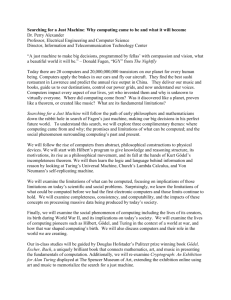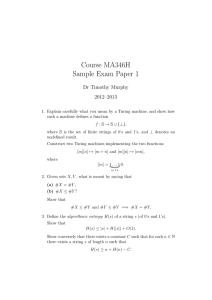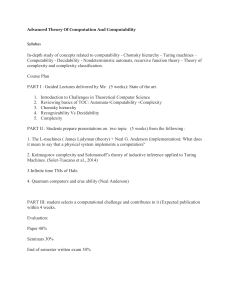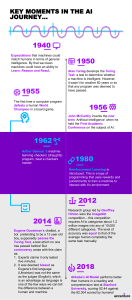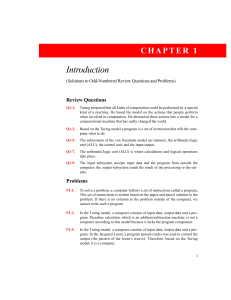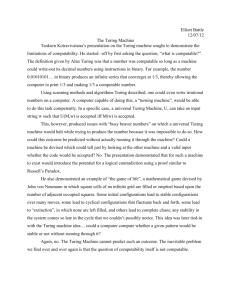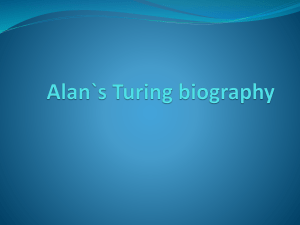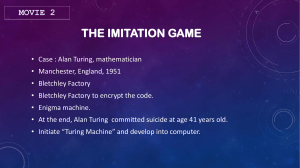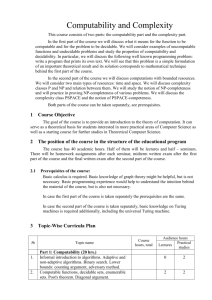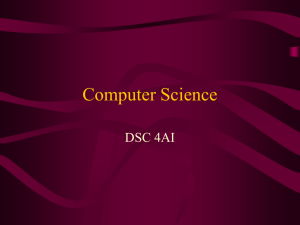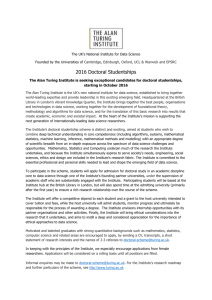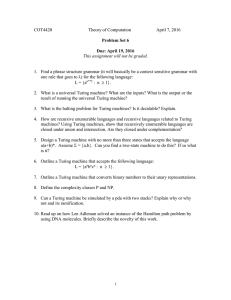Computer Science It's more than programming
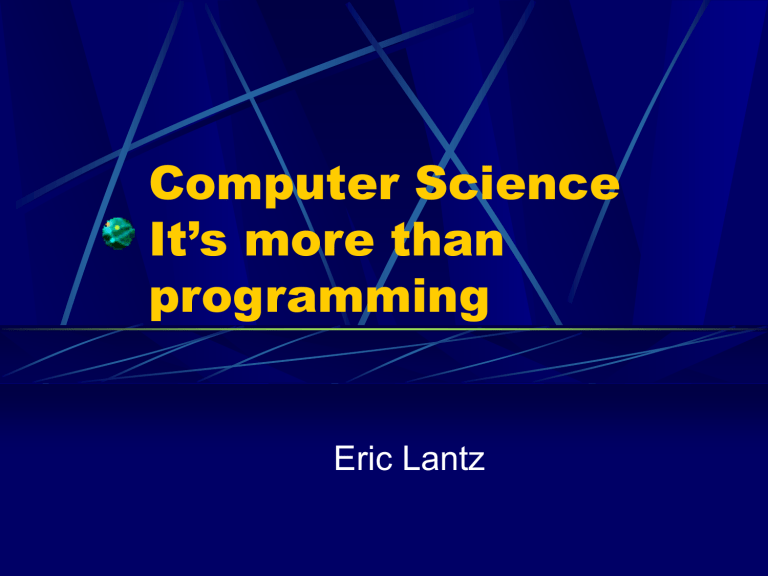
Computer Science
It’s more than programming
Eric Lantz
Computer science is no more about computers than astronomy is about telescopes.
Edsger Dijkstra
What is Computer
Science?
• Computer Science is a science of abstraction
- creating the right model for a problem and devising the appropriate mechanizable techniques to solve it. - A. Aho and J. Ullman
• Study of the theory and application of computation
History
• In the 1820’s Charles Babbage began work on an Analytical Engine. a mechanical device to perform calculations specified on cards
• Mathematician Ada Lovelace wrote the first program for the (never built) machine to calculate the Bermoulli numbers
From Wikipedia:
Prior to the 1920s, the term computer referred to a human clerk that performed calculations.
Early researchers in what came to be called computer science, such as Kurt
Gödel , Alonzo Church , and Alan Turing , were interested in the question of computability: what things can be computed by a human clerk who simply follows a list of instructions with paper and pencil, for as long as necessary, and without ingenuity or insight?
Part of the motivation for this work was the desire to develop computing machines that could automate the often tedious and error-prone work of a human computer.
During the 1940s, as newer and more powerful computing machines were developed, the term computer came to refer to the machines rather than their human predecessors.
Architecture
• Designing logic circuits
• Memory
• Processor design
• Parallel processing
• Communication between units
Operating Systems
• Methods for solving problems dealing with software interactions
• Processor sharing
• Memory allocation
• Communication between programs
• Devices
• File system
Networks
• How do you move data quickly from one side of the globe to another?
• Protocols
(TCP/IP)
• Reliability
• Scalability
• Security
• applet
Databases
• Storing large amounts of data
• How to retrieve it efficiently?
• How to store it efficiently?
• How to answer questions about complex relationships?
• What should you put in a convenience store next to the diapers?
Programming
Languages
• Properties of languages: types, control flow, syntax and semantics
• Expressivity
• Portability
• Compilers /
Speed
Graphics
• How do we represent the real world on a flat screen?
• Modeling light, texture, curves
• Visualizing data
• Animation
Artificial Intelligence
• Computer vision
• Machine learning
• Formulating rules or models to tell things apart
• Game Playing
• Expert systems
• Neural Network example
Algorithms and Data
Structures
• Basis for most CS disciplines
• What is the best way to sort a list? Search through it?
• Doing things the right way can mean the difference between it finishing in your lifetime or during your lunch break.
• Analyzing best/worst/average case tradeoffs
• Traveling Salesperson
Theory
• What is computable? What is not?
• Power of Turing machines
• P vs NP
• Computational complexity
• Cryptography
• Quantum computing
Other fields
• Natural Language Processing
• Human-Computer Interaction
• Software Engineering
• Formal Methods
• Robotics
• Scientific Computation
